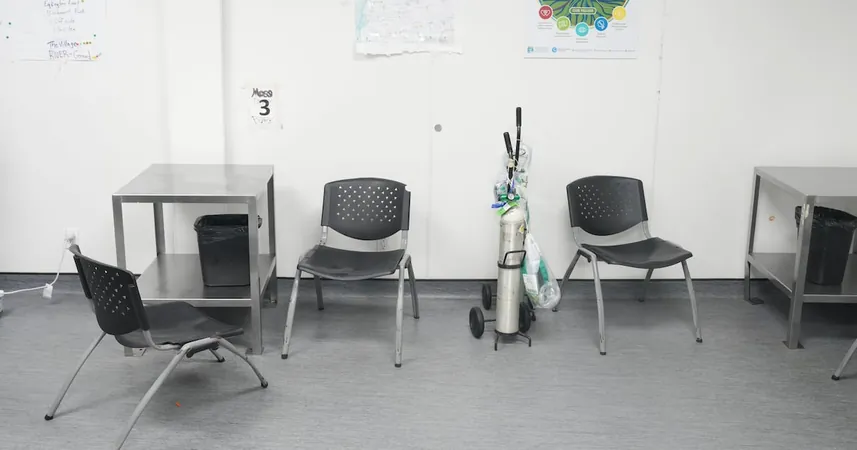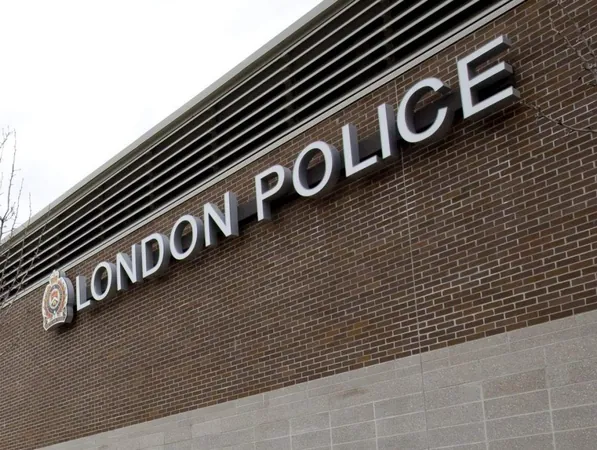
Ontario's Controversial Shift: 9 Supervised Consumption Sites Transition to Treatment Hubs Amid Outrage
2025-01-02
Author: William
Overview of the Transition
In a bold move met with significant backlash, the Ontario government has announced the conversion of nine supervised consumption sites into Homelessness and Addiction Recovery Treatment (HART) hubs. This decision follows an earlier declaration to close ten of these facilities due to concerns regarding their proximity to schools and childcare centers, prompting fears among advocates and medical professionals about a potential rise in overdose deaths.
Government's Justification
Deputy Premier and Minister of Health, Sylvia Jones, emphasized the government’s commitment to community safety in a recent press release, stating, "We have heard loud and clear from families across Ontario that drug injection sites near schools and childcare centers are making our communities less safe." The government’s response is part of a broader $378 million investment aimed at establishing a total of 19 such treatment hubs across the province, designed to enhance access to critical recovery and mental health services.
Details of the HART Hubs
Among the nine approved HART hubs, four will be located in Toronto. These include notable establishments such as the Parkdale Queen West Community Health Centre and the South Riverdale Community Health Centre, which will be equipped to provide a range of services, from 24/7 intake and medical monitoring to supportive housing connections. However, further details regarding the specific funding and services to be offered at these hubs, especially the one managed by Toronto Public Health (TPH), remain to be finalized.
Criticism and Concerns
Despite the province's optimistic outlook, the changes have ignited fierce criticism. Opponents, including healthcare workers and addiction advocates, warn that the closures will exacerbate the ongoing overdose crisis. A recent study from researchers at St. Michael’s Hospital revealed alarming statistics: about 561 individuals relied on the now-closed sites each month in 2022, yet only approximately 35 will be within 500 meters of an operational supervised consumption site after the changes take effect.
Auditor General's Report
In a scathing report, Ontario’s Auditor General criticized the Ministry of Health for failing to create a comprehensive strategy to assess the consequences of these closures. There was no formal consultation with stakeholders, particularly the users of the soon-to-be-closed facilities, raising significant ethical concerns regarding the decision-making process.
Future Implications
As the province moves forward with its controversial plan to dismantle existing supervised consumption sites in favor of HART hubs, the implications for public health and safety remain uncertain. Advocates fear that without adequate support and facilities for drug users, Ontario could face a tragic rise in overdoses and public health crises.
Conclusion
Will this transition truly lead to safer communities, or is it a recipe for disaster? Stay informed as we continue to follow this developing story in Ontario's fight against addiction.









 Brasil (PT)
Brasil (PT)
 Canada (EN)
Canada (EN)
 Chile (ES)
Chile (ES)
 Česko (CS)
Česko (CS)
 대한민국 (KO)
대한민국 (KO)
 España (ES)
España (ES)
 France (FR)
France (FR)
 Hong Kong (EN)
Hong Kong (EN)
 Italia (IT)
Italia (IT)
 日本 (JA)
日本 (JA)
 Magyarország (HU)
Magyarország (HU)
 Norge (NO)
Norge (NO)
 Polska (PL)
Polska (PL)
 Schweiz (DE)
Schweiz (DE)
 Singapore (EN)
Singapore (EN)
 Sverige (SV)
Sverige (SV)
 Suomi (FI)
Suomi (FI)
 Türkiye (TR)
Türkiye (TR)
 الإمارات العربية المتحدة (AR)
الإمارات العربية المتحدة (AR)